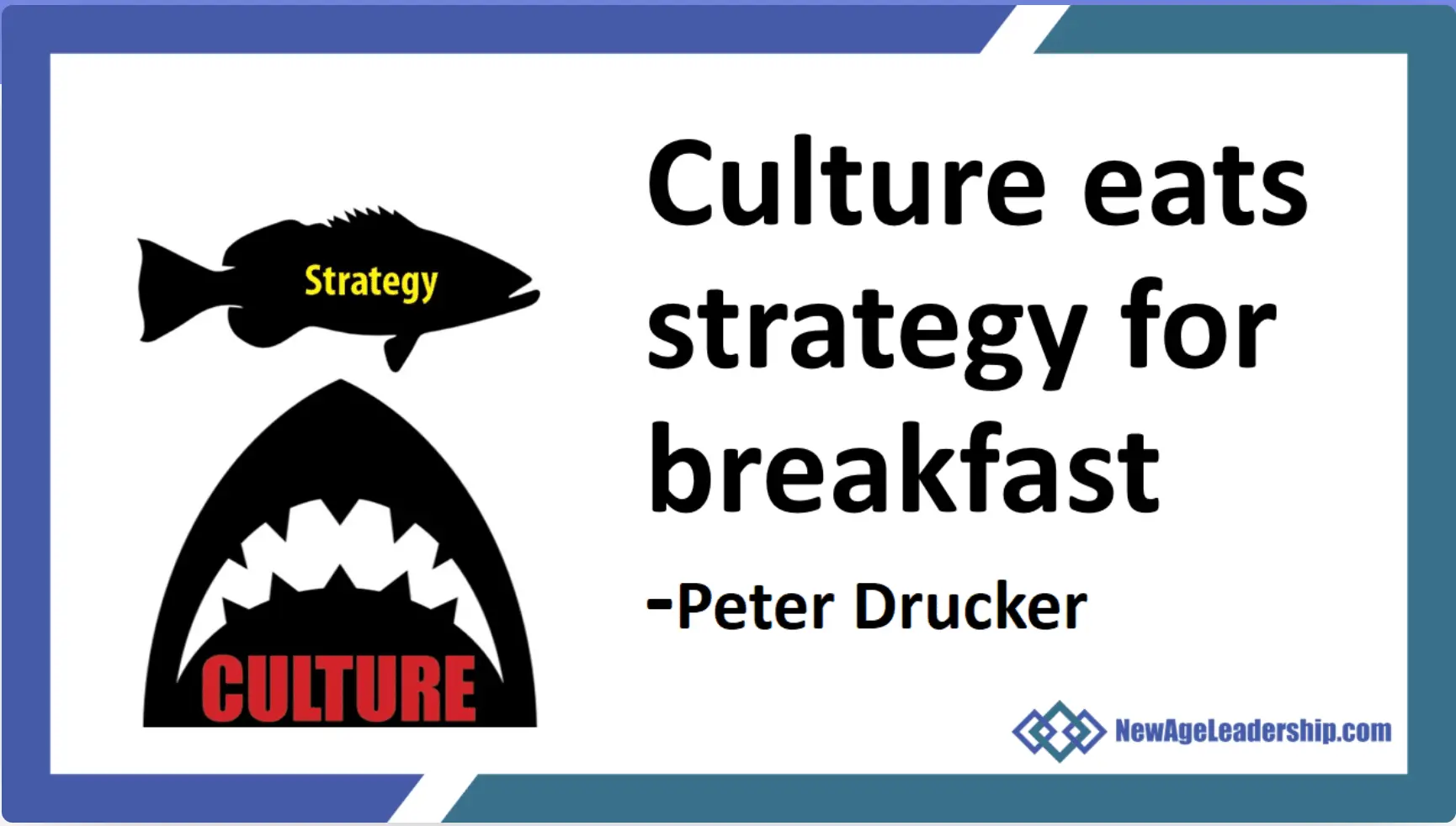Culture Eats Strategy for Breakfast
Peter Drucker’s famous pronouncement that “Culture eats strategy for breakfast” is given deeper meaning in a Rex Miller keynote address available on YouTube.

Rex Miller is a futurist and industry thought-leader who defines an organization’s “culture” as the values, attitudes and behaviors of the people. “Mission & Values statements are the Hallmark card version of culture.” But real “culture is the behavior that happens when management is not present.”
Culture is tough to change because it includes those who feel entitled, those influencers who have power without the authority, and all the work-arounds every department uses.
We know when culture is not serving the organization and its people when margins keep shrinking, people quit having fun and the organization’s services become a commodity available to the lowest bidder.
We are too often blind to these signs until it’s too late. Rex tells the story of Kodak, the once mighty king of photography and inventor of the phrase “Kodak Moment”. Kodak invented digital photography in 1975, but their images then were only .001 megs. So Kodak leadership thought the quality was not worth it, would never replace film and abandoned the project. Research continued in other companies like Casio and twenty years later Casio debuted digital photography (still only 0.25 megs) and the public loved it. Within 10 years it was Game Over for film and for Kodak. Why? Because Kodak saw themselves in the “film business” not the “memory capture” business. They were blind until it was too late.
What business are YOU in? Is your team Kodak or Casio? What behaviors and attitudes do you need in the future to be successful? Miller asks, cautioning, in the words of William Gibson, “The future is already here, it’s just not evenly distributed.”
The key is continuous improvement. Everyone. Every day. And Miller points to the classic compounding interest example: “Would you rather have $1 Million today or a penny today that doubles every day for 30 days?” The answer, of course, is the penny (continuous improvement). Because on Day 27 you’ll have $1.25 Million and in 3 more days nearly $10 million.
The bottom line: “The organizations that can adapt their cultures fastest with the least disruption, win.”
How? By building Intentional Culture. First strategize. Then, knowing culture eats strategy for breakfast, build a bridge to the future state that everyone can imagine; engage the whole team. Then experiment on how to get there. Finally, include everyone collaboratively in the visioning and in the decisions.
Lean culture is intentional culture. And it is our future.
